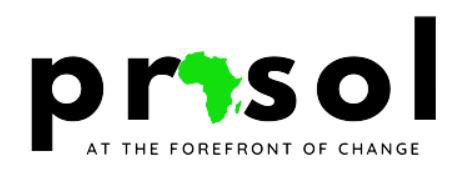Memory is a crucial aspect of our lives that helps us store and retrieve information from our past experiences. It allows us to learn, understand, and navigate the world around us. Without memory, we would be unable to perform everyday tasks, make decisions, or even recognize familiar faces.
I. Introduction
Memory is a crucial aspect of our lives that helps us store and retrieve information from our past experiences. It allows us to learn, understand, and navigate the world around us. Without memory, we would be unable to perform everyday tasks, make decisions, or even recognize familiar faces.
While many people struggle with memory at times, some individuals possess exceptional memory capabilities. These people can recall details and information with ease, often without relying on external aids such as notes or reminders. Having an exceptional memory can be a significant advantage in many areas, such as academics, business, and personal relationships.
In this article, we will discuss fifteen habits that can help anyone develop exceptional memory capabilities. These habits are based on scientific research and have been proven to improve memory in various ways. Whether you want to improve your memory for academic purposes, career advancement, or simply for personal development, these habits can help you achieve that goal.
By incorporating these habits into your daily life, you can train your brain to remember and recall information more effectively. From using memory techniques to staying organized, to getting enough sleep, we will explore a variety of strategies that can help you develop exceptional memory. So, let’s dive in and learn how to improve memory with these fifteen habits.
Habit #1: Use Memory Techniques
Memory techniques are a set of methods that help individuals remember information more effectively. These techniques are based on the concept of visualizing information, which is proven to help recall. Examples of memory techniques include the method of loci, the peg system, and the link system. To use these techniques, you need to create mental images of the information you want to remember and connect them to something memorable. For instance, if you want to remember a grocery list, you can create an image of each item and associate it with a specific location in your house. Using memory techniques can significantly improve your memory capabilities.
Habit #2: Focus on One Thing at a Time
Multitasking is a common practice, but it can harm memory capabilities. When you try to focus on multiple tasks at once, your brain cannot give each task the attention it deserves, which can lead to forgetfulness. To improve memory, it is essential to focus on one thing at a time. This means avoiding distractions and allocating your attention fully to the task at hand. You can also use the Pomodoro technique, which involves working for 25 minutes and taking a 5-minute break, to help you focus on one task at a time. exit.
Habit #3: Stay Organized
Disorganization can cause forgetfulness and lead to stress, which can harm memory capabilities. Staying organized can help you remember important tasks and information. One way to stay organized is by creating a to-do list or using a planner. Another way is by decluttering your workspace and creating a system for storing essential items. By staying organized, you can reduce stress and improve memory.
Habit #4: Engage with Information
Active engagement with information is an effective way to improve memory. When you engage with information, you are actively processing it, which can help you remember it more effectively. Some ways to engage with information include asking questions, taking notes, summarizing the information, and teaching it to someone else. By actively engaging with information, you are more likely to remember it.
Habit #5: Practice Mindfulness
Mindfulness is the practice of being present and aware of your thoughts and feelings. Practicing mindfulness can help reduce stress and improve memory capabilities. One way to practice mindfulness is through meditation, which involves focusing your attention on your breath and observing your thoughts without judgment. Another way is through breathing exercises, which can help calm the mind and reduce stress. By practicing mindfulness, you can improve your memory capabilities and reduce stress.
Habit #6: Get Enough Sleep
Sleep is essential for memory consolidation, which is the process of transferring information from short-term memory to long-term memory. When you get enough sleep, your brain can consolidate memories more effectively, which can improve memory capabilities. To get enough sleep, you can create a bedtime routine, avoid screens before bed, and make sure your sleeping environment is conducive to sleep.
Habit #7: Exercise Regularly
Exercise has been shown to improve memory capabilities. When you exercise, you increase blood flow to the brain, which can improve cognitive function. Regular exercise can also reduce stress, which can harm memory. To incorporate exercise into your daily routine, you can take a walk, join a gym, or engage in an active hobby.
Habit #8: Challenge Your Brain
Challenging your brain is an effective way to improve memory. When you challenge your brain, you are forcing it to work harder, which can improve cognitive function. Some ways to challenge your brain include learning a new skill, doing crossword puzzles, or playing memory games. By challenging your brain, you are improving memory capabilities and cognitive function.
Habit #9: Eat a Healthy Diet
Eating a healthy diet can improve memory capabilities. Certain foods, such as blueberries and nuts, have been shown to improve cognitive function. A healthy diet should include fruits, vegetables, lean protein, and healthy fats. It is also important to stay hydrated by drinking enough water.
Habit #10: Reduce Stress
Stress can harm memory capabilities. It is important to reduce stress by practicing relaxation techniques such as meditation, breathing exercises, or yoga. You can also reduce stress by delegating tasks, saying no to requests, or taking breaks when needed. By reducing stress, you can improve your memory capabilities.
Habit #11: Practice Visualization
Visualization is a memory technique that involves creating mental images of the information you want to remember. Visualization can be used to remember names, faces, and other information. By creating a mental image of the information, you are more likely to remember it. Visualization is an effective memory technique that can improve memory capabilities.
Habit #12: Take Breaks
Taking breaks is an effective way to improve memory. When you take a break, you give your brain time to rest and recharge. Taking a break can also reduce stress, which can harm memory. To take a break, you can go for a walk, take a nap, or engage in a fun activity. By taking breaks, you can improve your memory capabilities.
Habit #13: Stay Hydrated
Staying hydrated is important for memory capabilities. Dehydration can cause forgetfulness and harm cognitive function. It is important to drink enough water throughout the day to stay hydrated. You can also eat fruits and vegetables with high water content to help stay hydrated.
Habit #14: Use Mnemonics
Mnemonics are memory techniques that involve using acronyms or other memory aids to remember information. Mnemonics can be used to remember lists, names, or other information. By using mnemonics, you are creating a mental link between the information and something memorable. Mnemonics are an effective memory technique that can improve memory capabilities.
Habit #15: Practice Repetition
Repetition is an effective way to improve memory. By repeating information, you are reinforcing it in your memory. Repetition can be used to remember names, phone numbers, or other information. By practicing repetition, you are improving your memory capabilities.
In conclusion, by incorporating these fifteen habits into your daily life, you can train your brain to remember and recall information more effectively. From using memory techniques to staying organized, to getting enough sleep, we have explored a variety of strategies that can help you develop exceptional memory. By practicing these habits consistently, you can improve your memory capabilities and achieve your personal and professional goals.
Conclusion
In conclusion, we have explored fifteen effective habits for developing exceptional memory. By implementing these habits into your daily routine, you can improve your memory capabilities and achieve your personal and professional goals. Each of these habits is important for developing exceptional memory. By incorporating these habits into your daily routine, you can improve your ability to remember and recall information more effectively.
I encourage you to try incorporating these habits into your daily life. You may want to start by choosing a few habits to focus on at first, such as getting enough sleep or staying organized. Over time, you can work on adding more habits to your routine. Remember that developing exceptional memory takes time and consistent effort.
The benefits of having an exceptional memory are numerous. You will be able to remember important details, recall information more quickly, and make connections between different pieces of information. This can lead to greater success in your personal and professional life. By making memory development a priority, you can unlock your full potential and achieve your goals. By following these fifteen habits and making memory development a priority, you can improve your memory capabilities and achieve greater success in all areas of your life.

